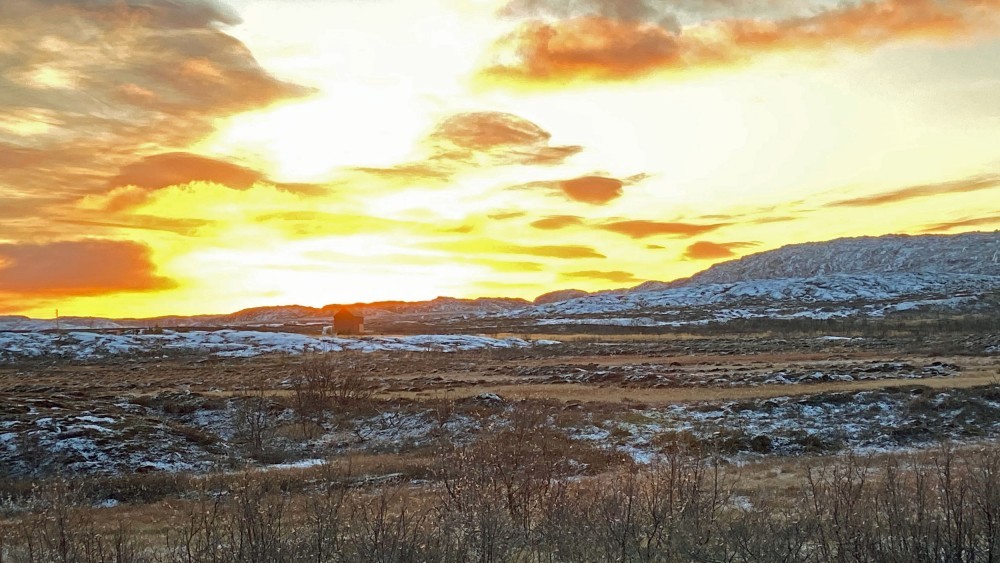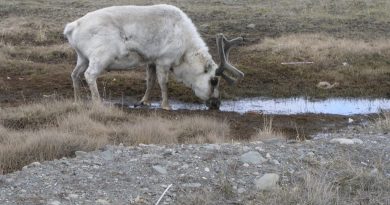Shocking temperatures across the Arctic

The hottest October ever in Europe is now followed by a November weekend with an average of 6,7°C above normal across the Arctic.
Heating is continuing to accelerate at an unprecedented speed in the north. The anomaly high temperatures this weekend are following a row of bad news this autumn.
November 21 came with temperatures 10-12°C higher than normal 30 years ago, according to the Climate Change Institute with the University of Maine. For the entire Arctic, the heat was on average 6,7°C higher than normal.
A belt of warm air is currently stretching from northern Greenland across the North Pole to the Laptev- and East Siberian Seas north of the Russian mainland. Northeast of Svalbard via Franz Josef Land to Severnaya Zemlya see similar heat.
Sea ice reduction
The Russian Arctic waters have a delayed growth of sea ice this winter. Open waters trigger warmer weather, and as previously reported by The Barents Observer, this October was extraordinary warm at several of the Russian archipelagoes, between 6-8°C warmer than normal. September also the warmest in Russia’s 130-year recorded history of measuring temperatures in its Arctic regions.
U.S. National Centers for Environmental Information can tell about October being the fourth-warmest on record in global average, but for Europe, the month ended as the hottest on record. Norway’s Meteorological Institute also points to the northern regions having the largest anomaly for October with 2,5-3°C higher than normal in Troms and Finnmark region.
Related stories from around the North:
Canada: What the Arctic’s transition to a ‘new climate’ looks like, CBC News
Greenland: Greenland losing ice faster this century than any previous one in last 12,000 years, says study, CBC
Norway: Record November warmth in Svalbard, Norway, The Independent Barents Observer
Russia: North Pole ice cap too thin for testing Russia’s giant icebreaker, The Independent Barents Observer
Sweden: Swedish MEP ‘extremely happy’ with EU vote to cut emissions by 60 percent, Radio Sweden
United States: Bering Sea ice at lowest extent in at least 5,500 years, study says, Alaska Public Media



